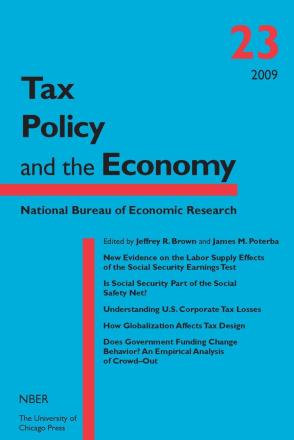Is Social Security Part of the Social Safety Net?

Building on the existing literature that examines the extent of redistribution in the Social Security system as a whole, this paper focuses more specifically on how Social Security affects the poor. This question is important because a social security program that reduces overall inequality by redistributing from high‐income individuals to middle‐income individuals may do nothing to help the poor; conversely, a program that redistributes to the poor may nonetheless be regressive according to broader measures if it also redistributes from middle‐ to upper‐income households. We have four major findings. First, as we expand the definition of income to use more comprehensive measures of well‐being, we find that Social Security becomes less progressive. Indeed, when we use an “endowment” defined by potential labor earnings at the household level rather than actual earnings at the individual level, we find that Social Security has virtually no effect on overall inequality. Second, we find that this result is driven largely by the lack of redistribution across the middle and upper parts of the income distribution, so it masks some small positive net transfers to those at the bottom of the lifetime income distribution. Third, in cases in which redistribution does occur, we find that it is not efficiently targeted: many high‐income households receive positive net transfers, whereas many low‐income households pay net taxes. Finally, the redistributive effects of Social Security change over time, and these changes depend on the income concept used to classify someone as “poor.”
-
Copy CitationJeffrey R. Brown, Julia Lynn Coronado, and Don Fullerton, Tax Policy and the Economy, Volume 23 (University of Chicago Press, 2009), chap. 2, https://www.nber.org/books-and-chapters/tax-policy-and-economy-volume-23/social-security-part-social-safety-net.Download Citation


